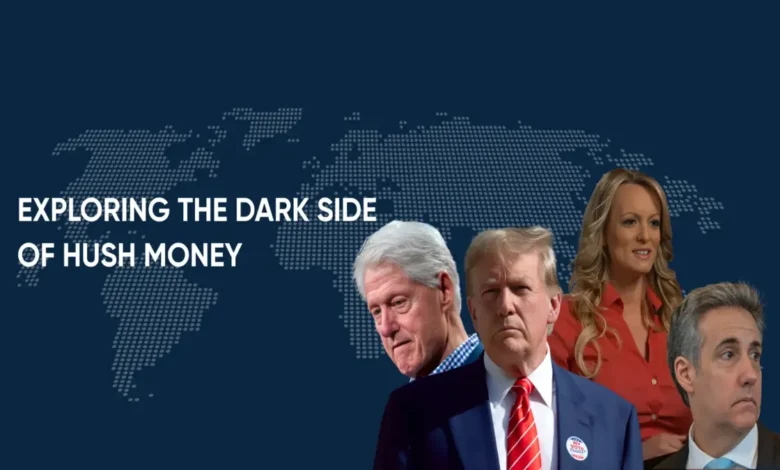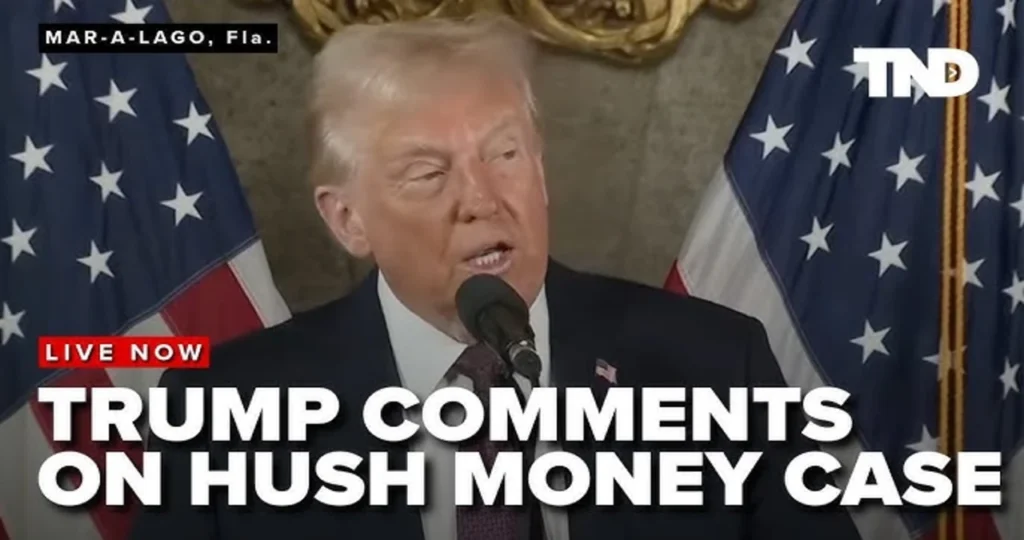Hush Money: A Deep Dive Into the Practice and Its Impact

Hush Money is a concept that has evolved into a term we frequently hear in various discussions about politics, scandals, and corporate intrigue. It refers to the payment made to keep someone quiet about certain information, often regarding sensitive or potentially embarrassing situations. While This is typically linked to high-profile celebrities, politicians, or business tycoons, it is not restricted to just the rich and famous. It exists in many forms, from legal settlements to informal payments, and can have significant legal, financial, and personal consequences for those involved.
In this article, we will explore the ins and outs of This, examining its history, the reasons behind its use, and the ethical and legal implications it carries. Through real-life examples and expert insights, we aim to shed light on why hush money is used, how it can impact individuals and organizations, and whether it is a practice that should be scrutinized more heavily in society today.
Understanding Hush Money: What It Is and How It Works
Hush money is a broad term used to describe payments made to keep someone from revealing information that could be damaging, embarrassing, or harmful. While the payment itself is relatively straightforward, the reasons behind its use and the context in which it is applied can vary significantly. Essentially, it is about silencing someone – often in exchange for money – to prevent a scandal or controversy from becoming public knowledge.
At its core, This can be seen as a form of negotiation. The person being paid is often in possession of information that could damage a person’s reputation or cause significant harm to a business, organization, or government entity. By offering This, the payer hopes to buy silence, thus preventing a scandal from unfolding.
Hush money payments can happen in many forms. Sometimes it’s a lump sum paid as part of a legal settlement or a non-disclosure agreement (NDA). In other cases, it could be a one-time payment or a series of installments made to ensure that the individual remains quiet. Importantly, these payments can be formal or informal, and often, they are kept secret to avoid legal or public repercussions.
The Role of Hush Money in Scandals and Legal Disputes
One of the main areas where This comes into play is in scandals involving public figures. Politicians, entertainers, and business moguls often use This to avoid embarrassing revelations that could damage their careers. These figures may be involved in extramarital affairs, financial mismanagement, or other controversial actions, and hush money serves as a tool to prevent these issues from becoming public knowledge.
In the legal world, This often comes in the form of settlements. For example, individuals who have been wronged – whether through sexual harassment, fraud, or other illegal actions – may be offered hush money in exchange for agreeing to keep quiet about their experiences. In this case, the payment is typically framed as a settlement, and an NDA is often signed to make it legally binding.
However, while hush money may seem like a straightforward solution for those seeking to keep damaging information under wraps, its use is not without controversy. Critics argue that the practice is unethical, as it allows wrongdoers to avoid accountability for their actions. Moreover, some believe that the use of hush money perpetuates a culture of silence, where victims are pressured into accepting money in exchange for their silence, rather than seeking justice.
Famous Cases Involving Hush Money
Throughout history, there have been numerous high-profile cases where hush money played a pivotal role in preventing a scandal from reaching the public. One of the most infamous cases involves former U.S. President Donald Trump and his alleged payments to adult film star Stormy Daniels. According to reports, Trump’s legal team paid Daniels a significant sum of money to keep her quiet about their alleged affair. The scandal surrounding these payments became public in 2018, sparking investigations and legal challenges.
Another example is the case of Hollywood producer Harvey Weinstein. Weinstein’s career was built on his power and influence in the entertainment industry, but his alleged history of sexual harassment was long kept quiet, in part due to hush money paid to his victims. These payments, along with non-disclosure agreements, were used to suppress accusations and keep the public from learning about his actions.
In both of these cases, the hush money payments were ultimately uncovered, but they played a crucial role in delaying the public exposure of the scandals. These examples show that while hush money can provide a temporary solution, it is not foolproof, and the truth often comes to light eventually.
Ethical Considerations: Is Hush Money Ever Justified?
The ethical implications of hush money are complex and widely debated. On one hand, some argue that it is a fair and legal way to resolve disputes and protect individuals from harm. For example, in cases of sexual harassment, a victim may prefer to receive This rather than engage in a lengthy and public legal battle. In these cases, the payment can serve as a form of closure for the victim, allowing them to move on with their life without the need for further public exposure.
On the other hand, critics contend that This is inherently unethical because it allows individuals or organizations to avoid taking responsibility for their actions. By paying for silence, wrongdoers are often able to escape justice, leaving victims without the opportunity for proper legal recourse. Furthermore, critics argue that the practice of This perpetuates a culture of silence and secrecy, where powerful individuals can buy their way out of accountability.
For example, in cases of sexual harassment or assault, victims may feel pressured to accept This to avoid the emotional and financial toll of a public trial. This can create a dangerous power dynamic, where those in power can silence victims and avoid facing the consequences of their actions.

Hush Money and the Legal System
From a legal perspective, hush money can present significant challenges. On one hand, settlements involving hush money are often framed as legally binding agreements. Non-disclosure agreements (NDAs) are typically signed to ensure that the recipient of the hush money does not speak about the terms of the settlement or the events that led to the payment.
However, the use of hush money in legal disputes can raise red flags for lawyers and law enforcement officials. In some cases, the practice can be seen as an attempt to conceal illegal or unethical behavior. For example, if a company offers hush money to cover up an environmental violation or fraud, this could be a violation of the law, and the individuals involved could face criminal charges.
In other cases, individuals who receive hush money may later be able to seek legal recourse if they feel that the payment was made under duress or if they believe that the terms of the settlement were unfair. For example, a person who has been paid hush money in exchange for their silence may later decide to speak out and seek legal justice. In such cases, the legality of the hush money payment could be challenged in court.
The Impact of Hush Money on Personal and Professional Reputation
One of the most significant consequences of hush money is the impact it can have on an individual’s reputation. For the person receiving the hush money, the payment can serve as a form of closure, but it can also carry a heavy emotional and psychological burden. Victims of sexual harassment, for example, may feel betrayed or ashamed for accepting hush money, as it can imply that they are complicit in silencing the truth.
For those offering the hush money, the impact can be even more severe. While a person may pay to keep a scandal quiet, the revelation that hush money was involved can tarnish their reputation permanently. In many cases, the public’s perception of the individual or organization changes dramatically once the hush money payments are uncovered.
Moreover, the use of hush money can erode trust between public figures and their supporters. When the public learns that a politician, celebrity, or business leader has used hush money to cover up a scandal, it can lead to widespread disappointment and outrage. This loss of trust can have long-lasting consequences for the individual’s career and personal life.
Is Hush Money a Thing of the Past?
As the world becomes more transparent and information is more readily accessible, many have speculated that the practice of hush money may be on the decline. With social media, investigative journalism, and public scrutiny, it is becoming increasingly difficult for individuals to conceal damaging information. As a result, some believe that the effectiveness of This is waning.
However, this doesn’t necessarily mean that This will disappear. Some experts argue that its use may evolve in response to changing circumstances. For example, in today’s digital age, it is easier than ever to leak information, making it harder to keep scandals under wraps. As a result, those with the resources to pay for silence may simply shift to more sophisticated tactics, such as using private investigators or leveraging social media to control the narrative.
Furthermore, while the public may be more aware of This payments, there are still situations where they remain effective. In cases where individuals or organizations have significant influence or power, they may still be able to use This to avoid facing the consequences of their actions.
Conclusion: The Complex Reality of Hush Money
In conclusion, This is a practice that has been around for centuries and continues to have a significant impact on individuals, organizations, and society as a whole. Whether used in the context of legal settlements, celebrity scandals, or corporate cover-ups, This serves as a way to suppress damaging information and avoid public scrutiny.
While This may offer temporary relief, its long-term consequences can be far-reaching. From the ethical dilemmas it presents to the potential legal ramifications, the practice is fraught with complexity. As we move forward, it’s important to continue examining the role of This in society, as well as the power dynamics that make it a tempting tool for those seeking to protect their reputations or avoid accountability.
Whether This will remain a pervasive part of the cultural and legal landscape or evolve into something entirely different remains to be seen. However, it’s clear that the practice has left a significant mark on history and will continue to spark debate for years to come.





